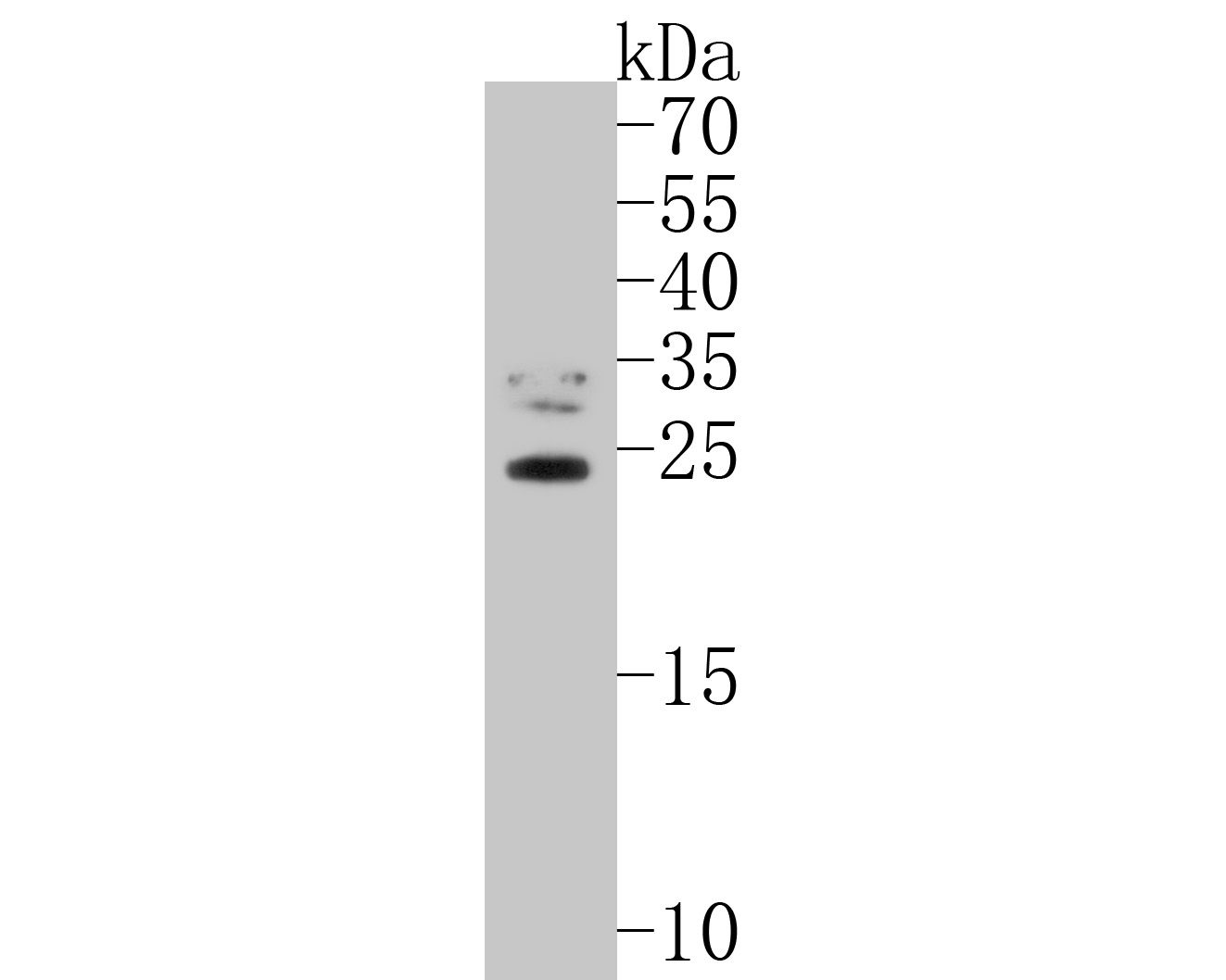-
Product Name
Anti-LOC4331832 antibody
- Documents
-
Description
Rabbit polyclonal antibody to LOC4331832
-
Tested applications
WB, ELISA
-
Species reactivity
Oryza sativa
-
Alternative names
JAZ9 antibody; OsJAZ3 antibody; OsJAZ9 antibody; TIFY11A antibody; OsJ_09656 antibody; OsTIFY11a antibody
-
Isotype
Rabbit IgG
-
Preparation
This antigen of this antibody was recombinant protein within rice tify11a aa 50-179 / 179.
-
Clonality
Polyclonal
-
Formulation
Liquid, 1*TBS (pH7.4), 0.2% BSA, 50% Glycerol. Preservative: 0.05% Sodium Azide.
-
Storage instructions
Store at +4℃ after thawing. Aliquot store at -20℃. Avoid repeated freeze / thaw cycles.
-
Applications
WB: 1:500-1:2,000
ELISA: Use at an assay dependent concentration.
-
Validations

Fig1:; Western blot analysis of TIFY11A on rice tissue lysates. Proteins were transferred to a PVDF membrane and blocked with 5% NFDM/TBST for 1 hour at room temperature. The primary antibody ( 1/1,000) was used in 5% NFDM/TBST at room temperature for 2 hours. Goat Anti-Rabbit IgG - HRP Secondary Antibody (HA1001) at 1:200,000 dilution was used for 1 hour at room temperature.
- Background
-
References
- Lv Y. et. al. The OsMYB30 transcription factor suppresses cold tolerance by interacting with a JAZ protein and suppressing beta-amylase expression. Plant Physiol. 173:1475-1491(2017)
- Ye H. et. al. Identification and expression profiling analysis of TIFY family genes involved in stress and phytohormone responses in rice. Plant Mol. Biol. 71:291-305(2009)
Related Products / Services
Please note: All products are "FOR RESEARCH USE ONLY AND ARE NOT INTENDED FOR DIAGNOSTIC OR THERAPEUTIC USE"
